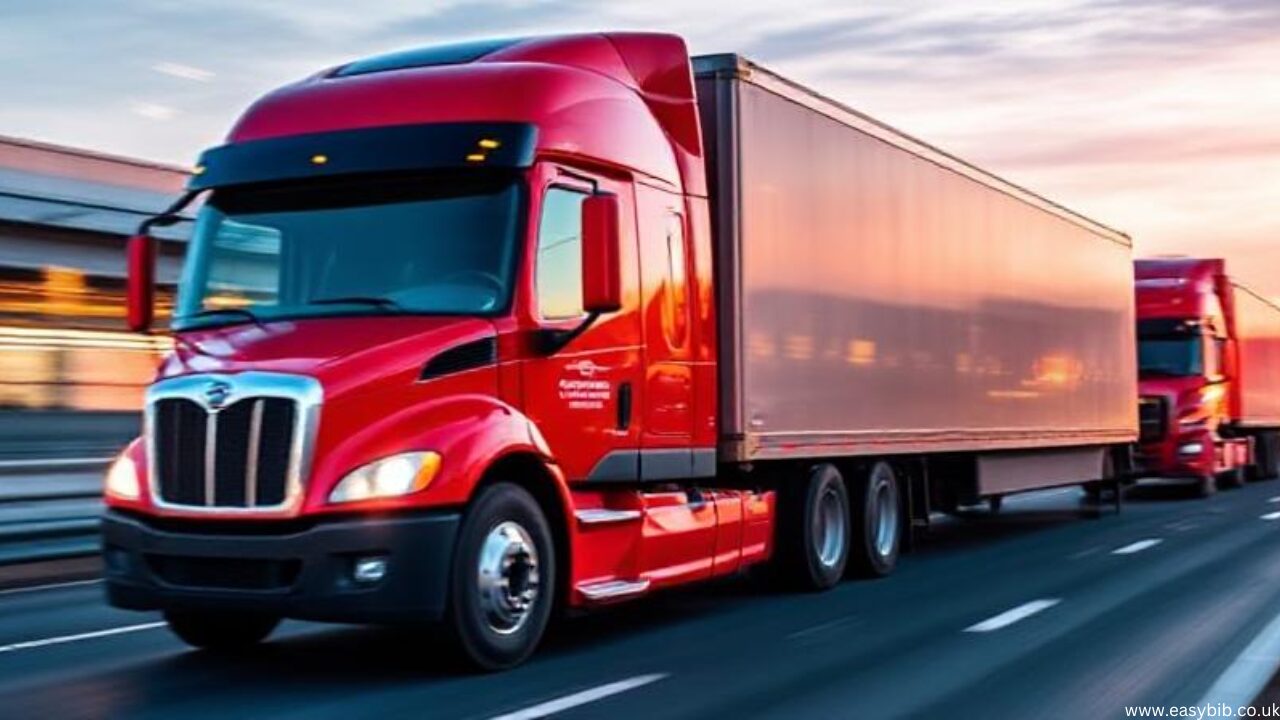Efficiency on the Move: How Technology is Changing Transportation Logistics

Technology is revolutionizing transportation logistics, making supply chains more efficient, cost-effective, and responsive. Businesses that once relied on manual planning and outdated tracking methods can now access advanced digital tools that optimize operations. Innovations such as artificial intelligence, the Internet of Things (IoT), and automation are reshaping how goods move from warehouses to their final destinations. These advancements streamline logistics and improve customer satisfaction by ensuring faster, more reliable deliveries.
Smarter Route Optimization
One of the biggest challenges in transportation logistics has always been route planning. Traffic congestion, unpredictable weather, and delivery windows make route selection complex. Traditional methods relied on driver experience and static maps, which often led to inefficiencies.
With AI in logistics and machine learning, route optimization has become more innovative and dynamic. Advanced algorithms analyze real-time data, such as traffic flow, weather conditions, and delivery schedules, to determine the most efficient path. This reduces fuel consumption, lowers operational costs, and ensures on-time deliveries. Companies can also adapt to last-minute disruptions, such as road closures or unexpected demand spikes, by rerouting vehicles in real time.
These tools translate into significant savings for fleet operators. Fuel is one of the most critical expenses in transportation, and optimizing routes helps cut unnecessary mileage. Additionally, fewer delays mean improved reliability, strengthened customer relationships, and enhanced brand reputation.
The Role of IoT in Real-Time Tracking
In modern logistics, tracking shipments in real time has become a necessity. The Internet of Things (IoT) has enabled companies to monitor goods throughout the supply chain, improving visibility and security.
IoT-enabled GPS trackers, RFID tags, and smart sensors constantly update a shipment’s location and condition. This is particularly valuable for industries transporting perishable goods, such as pharmaceuticals and food. Sensors can detect temperature fluctuations, ensuring sensitive products remain within the required conditions. The system triggers an alert if a deviation occurs, allowing immediate corrective action.
Beyond tracking, IoT enhances security by reducing the risk of theft or misplacement. Logistics managers can monitor cargo in real time and receive alerts if a shipment veers off course or is accessed at unauthorized locations. This level of transparency increases trust between suppliers, carriers, and customers, ensuring that deliveries arrive safely and on schedule.
Automation and Robotics in Warehousing
Efficiency in transportation logistics starts long before goods hit the road. Warehousing operations are crucial in ensuring that shipments are processed quickly and accurately. Technology-driven automation transforms warehouses, reducing reliance on manual labor while increasing speed and precision.
Automated storage and retrieval systems (AS/RS) use robotics to store and retrieve products from shelves, minimizing human error and maximizing space utilization. Robotic pickers can handle order fulfillment at a pace far beyond human capability, reducing bottlenecks in high-volume operations. AI-driven inventory management ensures that stock levels are always accurate, preventing overstocking or shortages that could disrupt supply chains.
These innovations lead to faster order processing times, directly impacting delivery efficiency. By integrating automation into their logistics strategy, businesses can handle more shipments more accurately, ultimately improving customer satisfaction.
The Impact of Transport Management Systems
A well-integrated Transport Management System (TMS) is at the heart of modern logistics efficiency. These digital platforms centralize data, automate manual tasks, and provide real-time insights that help businesses make informed decisions.
A TMS helps companies optimize fleet performance by monitoring fuel usage, tracking vehicle maintenance, and analyzing driver behavior. It can also automate shipment scheduling, invoice generation, and compliance tracking processes, reducing the administrative burden on logistics teams.
With real-time data integration, businesses gain greater visibility into their supply chains. They can track shipments from departure to arrival, identify inefficiencies, and adjust as needed. By leveraging a TMS, companies can reduce costs, improve on-time delivery rates, and ensure better resource allocation, making their operations more competitive in the long run.
Sustainability and the Future of Logistics
As global supply chains expand, the environmental impact of transportation logistics is becoming a growing concern. Companies are now looking for ways to reduce their carbon footprint while maintaining operational efficiency.
Electric and hydrogen-powered trucks are emerging as viable alternatives to traditional diesel fleets. These vehicles produce fewer emissions and help companies meet increasingly strict environmental regulations. At the same time, logistics software ensures that cars are fully loaded and that delivery routes are optimized to minimize empty miles, reducing fuel consumption.
Sustainability initiatives also include carbon tracking tools, allowing businesses to measure and report emissions. By incorporating eco-friendly practices into logistics operations, companies contribute to environmental preservation and attract environmentally conscious customers and investors.
READ MORE
DB Schenker: Revolutionizing Logistics
Conclusion
Technology is transforming transportation logistics, making it more efficient, transparent, and sustainable. AI-driven route optimization, IoT-powered real-time tracking, warehouse automation, and transport management systems enable companies to streamline operations and cut costs. At the same time, sustainability efforts are shaping the future of logistics by promoting greener transportation solutions.
Businesses that embrace these innovations will gain a competitive edge, improve service quality, and reduce environmental impact. As technology continues to evolve, the logistics industry will become faster, wiser, and more resilient in meeting the demands of modern supply chains.
